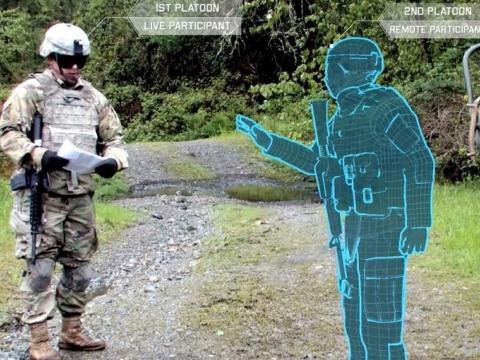Closing the Information Loop with Better Data Use
As the U.S. military shifts its operational focus from counterinsurgency to contending with near-peer nation state adversaries, the need to remain dominant in multidomain operations is key.
But there are challenges operating in this space that require a sophisticated approach to managing data, software tools and people, Keith Catanzano, managing director of the Analytics and Strategy Practice at Deloitte’s Government and Public Services Sector, and David Thomas, a principal in the same practice told Robert K. Ackerman, SIGNAL Magazine’s editor in chief during a SIGNAL Executive Video Series discussion.
One aspect of multidomain operations is information advantage. From a commercial perspective, Catanzano explains that this is having a unique set of capabilities that gives an organization an advantage such as creating new revenue streams products or redefining a workforce.
Seen from a government/Defense Department perspective, he adds that this means examining how data can be an asset in supporting operations and making decisions based on senior leaders’ input and backed up with analytics.
Both environments share some common challenges such as data discovery. Catanzano notes there is a certain amount of “entropy” around data management and “without some attention there will be a gradual decline into disorder of our data sets.” This means data will reside in different locations. While there may be some desire to consolidate it, the most important goal is access it virtually “so it stays where it lives,” he said.
Another challenge is data readiness. This includes issues such as the discoverability of data, its availability, and cleaning out any bias residing in the data. This is of particular concern for artificial intelligence and machine learning applications where decades worth of data might be tainted.
“When we think about information advantage, it’s not just about having more data, it’s about pushing that data into a place where we can churn it into information to make better, faster decisions than our adversaries,” Thomas said.
Thomas added that the cycle time from data collection to decision making by humans or machines is rapidly decreasing. Deloitte and the DoD are examining “all sorts of ways” to apply technological and domain understanding to further reduce that decision loop, he said.





Comments